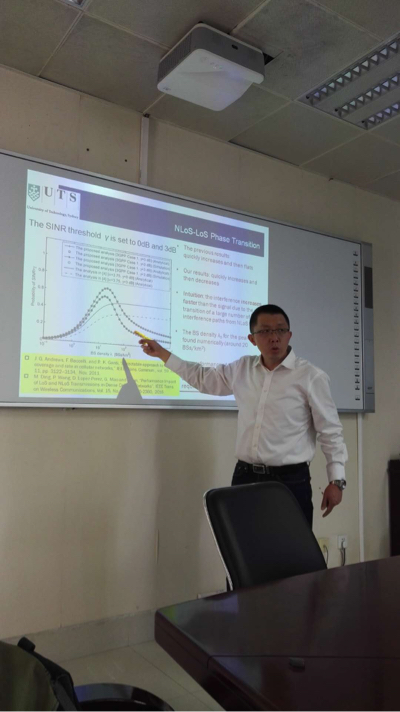报告题目:The Limit of Wireless Network Capacity
主讲嘉宾:Prof. Guoqiang Mao, 悉尼科技大学
时间:2018年3月2日(周五) 上午10:00
地点:永利集团南区基础实验楼北座信息工程学院N710会议室
报告摘要:Wireless network capacity has doubled every 30 months for more than three decades since the advent of the cellular phone, a phenomenon widely known as “Coopers Law”, named after the cell phone pioneer Martin Cooper. Like all exponential growths, Cooper’s Law must eventually reach a limit. There have been few studies and little understanding on when the Law will plateau and how close we are to the end of the Law. When Cooper’s Law does plateau, it will pose major challenges to almost all sectors of the high-tech industry. The capability to predict the end of Cooper’s Law and to know the limit of wireless capacity growth is crucial for the high-tech industry sectors to set realistic expectations and growth plans, and avoid the sudden shock that potentially destroys their growth. In this talk, I will introduce our recent research aiming to answer three critically important questions of when Cooper’s Law will end, what may cause the Law to end and how to prolong the lifetime of the Law.
嘉宾简介:
Guoqiang Mao received PhD in telecommunications engineering in 2002 from Edith Cowan University, Australia. He was with the School of Electrical and Information Engineering, the University of Sydney between 2002 and 2014. He joined the University of Technology Sydney in February 2014 as Professor of Wireless Networking and Director of Center for Real-time Information Networks. He has published over 200 papers in international conferences and journals, which have been cited more than 5,800 times. He is an editor of the IEEE Transactions on Intelligent Transportation Systems, IEEE Transactions on Wireless Communications, IEEE Transactions on Vehicular Technology and received “Top Editor” award for outstanding contributions to the IEEE Transactions on Vehicular Technology in 2011, 2014 and 2015. He is a co-chair of IEEE Intelligent Transport Systems Society Technical Committee on Communication Networks. He has served as a chair, co-chair and TPC member in a large number of international conferences. His research interest includes intelligent transport systems, applied graph theory and its applications in telecommunications, Internet of Things, next generation mobile communication systems, and wireless localization techniques. He is a Fellow of IEEE and IET.


